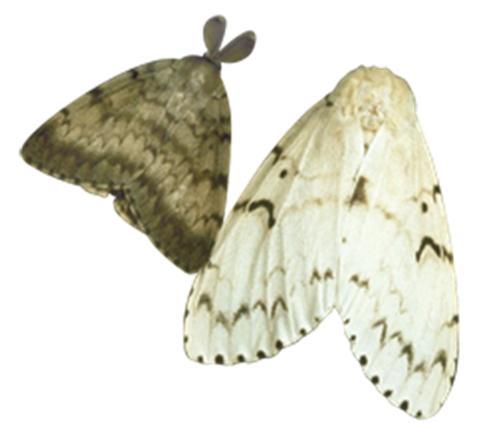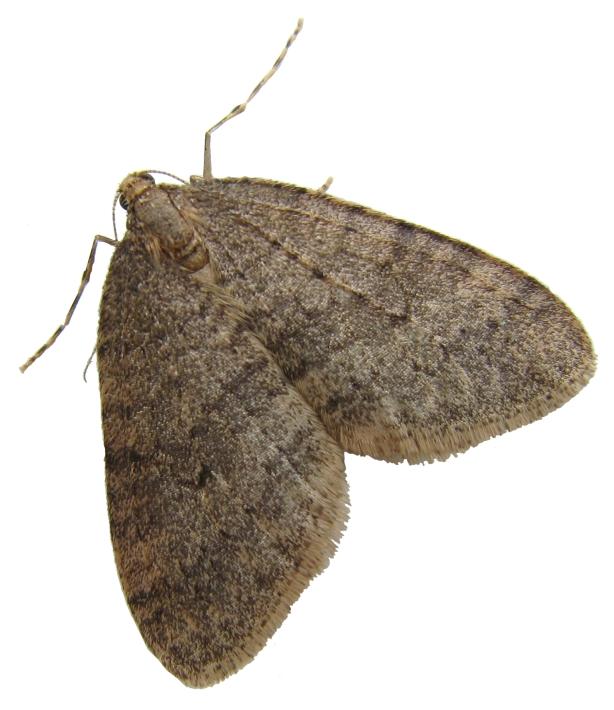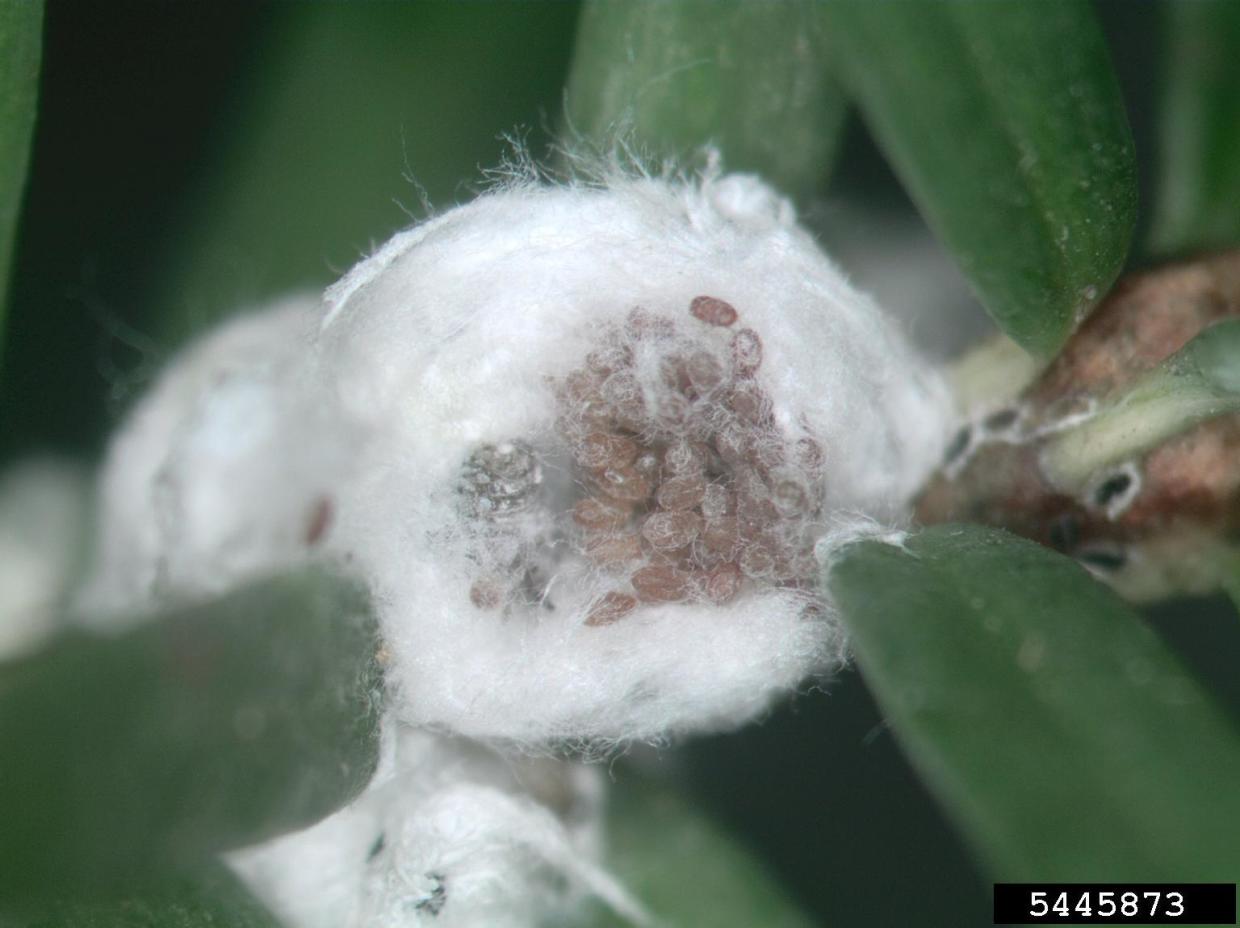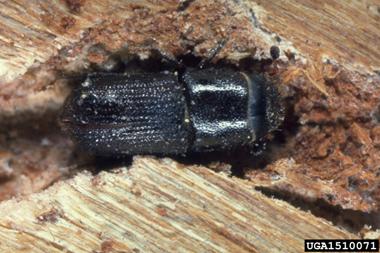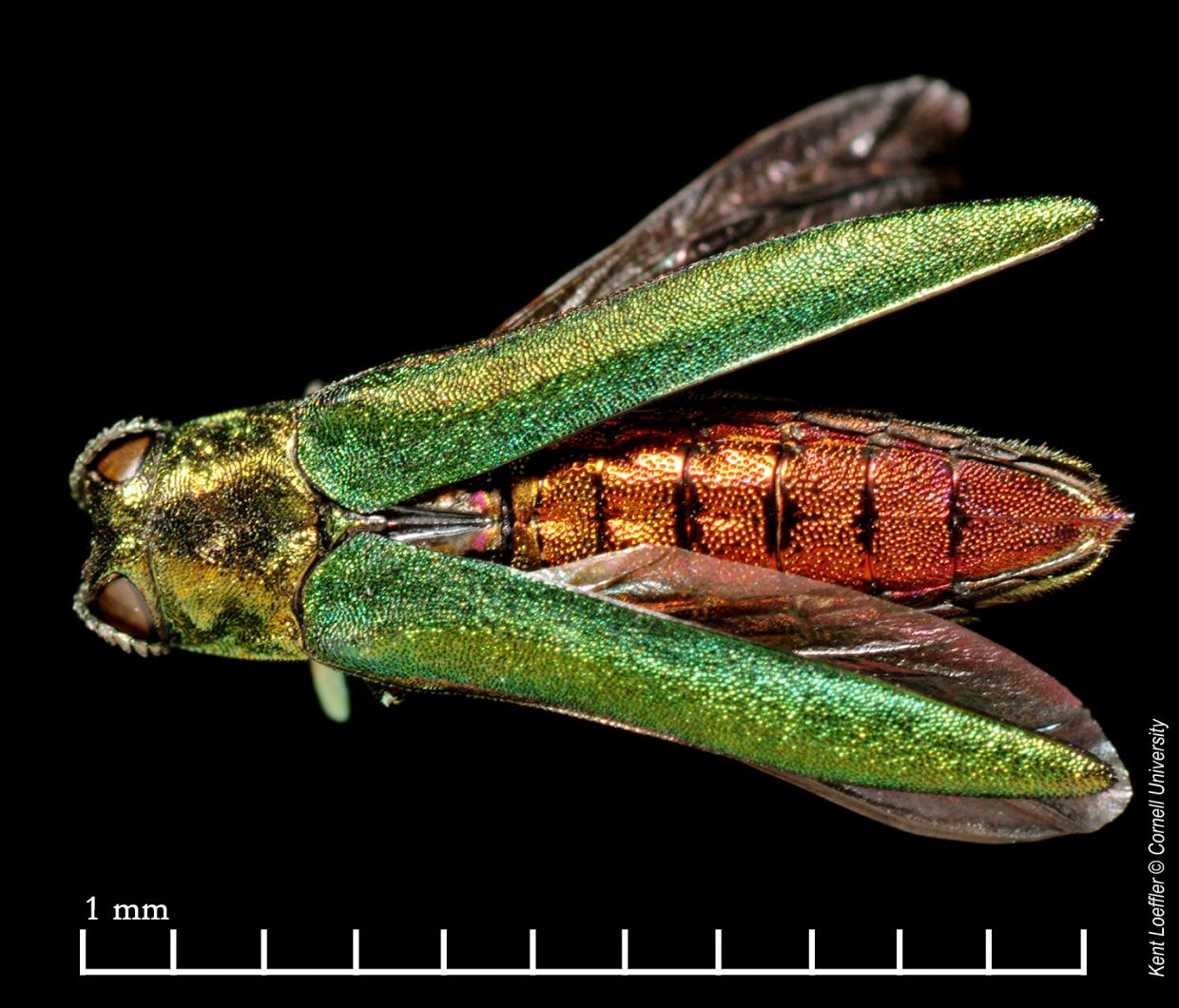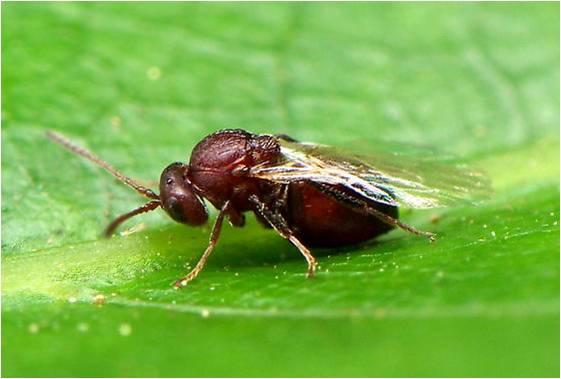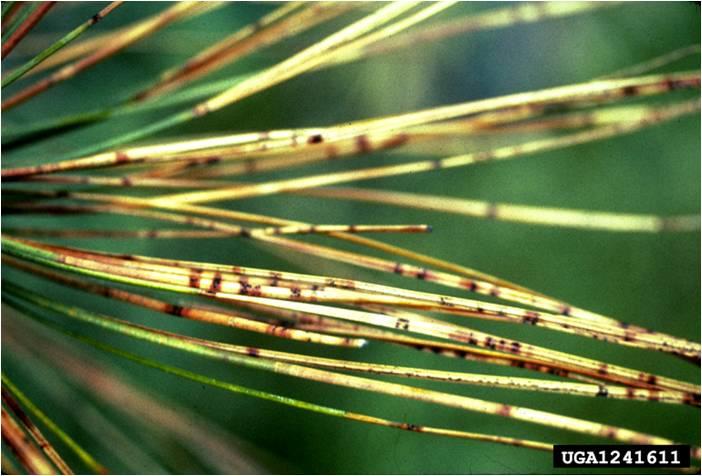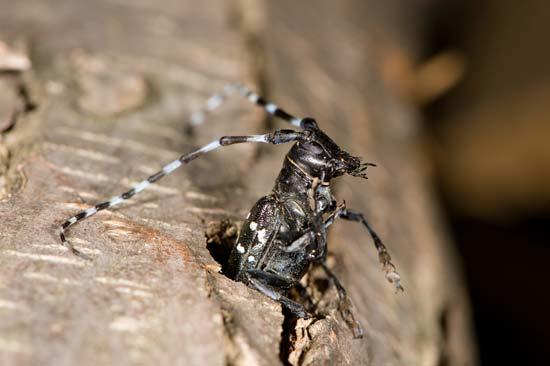Current Threats to Massachusetts Forests
| Agent | Picture | Origin | Host Trees | Present | DCR-Management Approach |
|---|---|---|---|---|---|
| Beech Leaf Disease | Introduced 2012 in USA, 2020 in Massachusetts | American Beech, European Beech, and Oriental Beech | Statewide | The DCR Forest Health Program is surveying beech trees across the state to determine the extent of the disease in Massachusetts | |
Lymantria dispar | Introduced 1869 | Oaks, other deciduous species | Statewide | Current management approach relies on natural population controls – naturally abundant virus and fungus populations regulate spongy moth population cycles | |
Winter Moth Operophtera brumata | Introduced 2002 | Maples, oaks, other deciduous species | Eastern Mass | Biocontrol species, Cyzenis albicans, has been released and successfully established in an effort to manage winter moth populations. | |
Hemlock Woolly Adelgid Adelges tsugae | Introduced 1989 | Eastern hemlock | Statewide | Three biocontrol species, Psedudoscymnus tsugae, Laricobius nigrinus, and Leucotaraxis spp (silverfly), have been released in MA to limit establishment success. | |
Southern Pine Beetle Dendroctonus frontalis | Native | Pitch pine | Statewide | Population densities are being monitored through annual trapping. The impacts of climate change could significantly alter southern pine beetle generation periods and devastate pitch pine stands. | |
Agrilus planipennis | Introduced 2012 | All ash species | Statewide | Three biocontrol species, Tetrastichus planipennisi, Spathius galinae, and Oobius agrili, have successfully been released in MA. Continued releases are planned. | |
Black Oak Gall Wasp Zapatella davisae | Native | Black oak | Cape Cod and Martha’s Vineyard | There is ongoing research to map and monitor the extent of damage caused by the black oak gall wasp. | |
| White Pine Needlecast | Native | Eastern white pines | Statewide | White pine defoliation is being monitored across the state. Needlecast has been identified to be caused by multiple fungal pathogens; the most prevalent agent in Massachusetts is Lecanosticta acicola. | |
Anoplophora glabripennis | Introduced 1996 | 12 Host genus | Worcester, Boylston, West Boylston, Shrewsbury, Holden, Auburn | The eradication program established quarantines to avoid transporting infested wood outside the area. Survey every host tree in quarantine areas for ALB signs. Remove infested trees and destroy them by chipping. DCR works in cooperation with USDA PPQ APHIS. |

